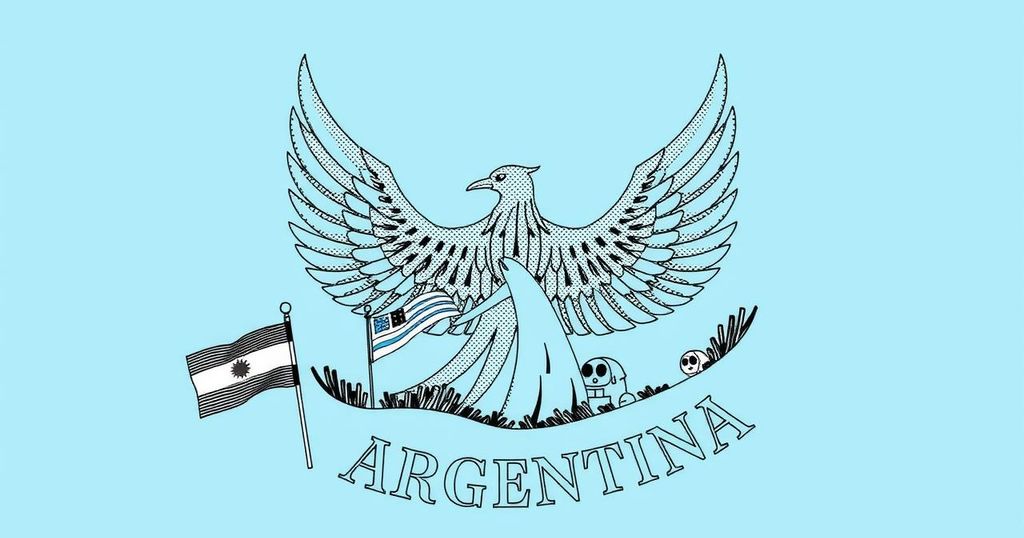Argentina’s Diplomatic Shift: A Move Towards Libertarianism at the UN

Argentina has witnessed a significant shift in its UN stance under President Javier Milei, prioritizing libertarian values over previous progressive policies. The departure of key diplomats, particularly Ambassador Ricardo Lagorio and Foreign Minister Diana Mondino, marks a turning point in international relations. Argentina’s recent votes opposing resolutions on women’s rights and Palestine illustrate this shift, as the government realigns itself closer to ideologies represented by leaders like Donald Trump, indicating a dramatic transformation in its diplomatic approach.
Argentina’s political landscape at the United Nations has undergone a significant transformation following the appointment of President Javier Milei, shifting from a progressive leftist approach to a more libertarian stance. Ricardo Lagorio, Argentina’s ambassador since March 2024, held a farewell party recently as he prepares to retire from the foreign ministry. Lagorio’s departure coincided with President Milei’s directive for alignment with his administration’s values on freedom, leading to several changes in the diplomatic corps, including the dismissal of Foreign Minister Diana Mondino. Under Milei’s leadership, Argentina’s foreign policy has markedly shifted, as exemplified by a recent vote in favor of lifting the U.S. economic embargo against Cuba in the UN General Assembly, which drew immediate backlash and resulted in the firing of Mondino. This reaction underscores a departure from the progressive policies upheld by previous administrations and highlights Milei’s libertarian beliefs, which dismiss the UN as an organization imposing ideological agendas. The new administration has also moved to close the Ministry of Women, Genders, and Diversity, indicating a fundamental change in domestic policy as well. As a self-described anarcho-politician, Milei’s perspective drastically contrasts with Argentina’s historical role in the UN. His disparaging comments about global initiatives, especially regarding climate goals, and a recent exit from the UN climate change conference COP29, exemplify his administration’s rejection of what he describes as a socialist agenda. These actions foreshadow a significant reduction in Argentina’s international commitments, particularly concerning climate and social justice. In a notable vote, Argentina became the only country to oppose a resolution focused on preventing violence against women and girls online— a drastic deviation from prior stances. Furthermore, the government’s alignment with Israel and other nations against Palestinian causes demonstrates a recalibration of Argentina’s foreign interests that contrasts sharply with its previous support for Palestinian recognition. Milei’s administration has also taken steps to withdraw Argentinian military presence in international peacekeeping missions, reflecting a broader trend of disengagement from global cooperation. Overall, Argentina’s rightward shift under Milei marks the end of an era characterized by progressive ideals in international forums, leading to uncertainty regarding its future diplomatic engagements and commitments.
The recent political changes in Argentina and their implications on international relations were significantly shaped by President Javier Milei’s libertarian vision. This alteration comes after a period where Argentina was perceived as a progressive defender of human rights under leftist governments. The shift indicates a rejection of former ideals, aligning more closely with nationalistic and conservative stances. Milei’s administration heralds a transformation that profoundly impacts foreign policy and Argentina’s interaction on global platforms such as the United Nations, where previous norms regarding issues such as women’s rights and environmental commitments are likely to be re-evaluated. The recent administrative changes, including personnel shifts in the foreign ministry and voting patterns at the UN, underscore this transition.
Argentina’s political shift at the UN symbolizes a transformative era under President Javier Milei, whose libertarian principles have profoundly altered the nation’s foreign policy. This transition is evident in the retractions from previously supported initiatives, such as women’s rights and support for Palestine, reflecting a broader ideological pivot. As Argentina realigns its global position, it may face challenges in maintaining its historical commitments to international cooperation and human rights advocacy, heralding a new phase in its diplomatic journey.
Original Source: www.passblue.com







